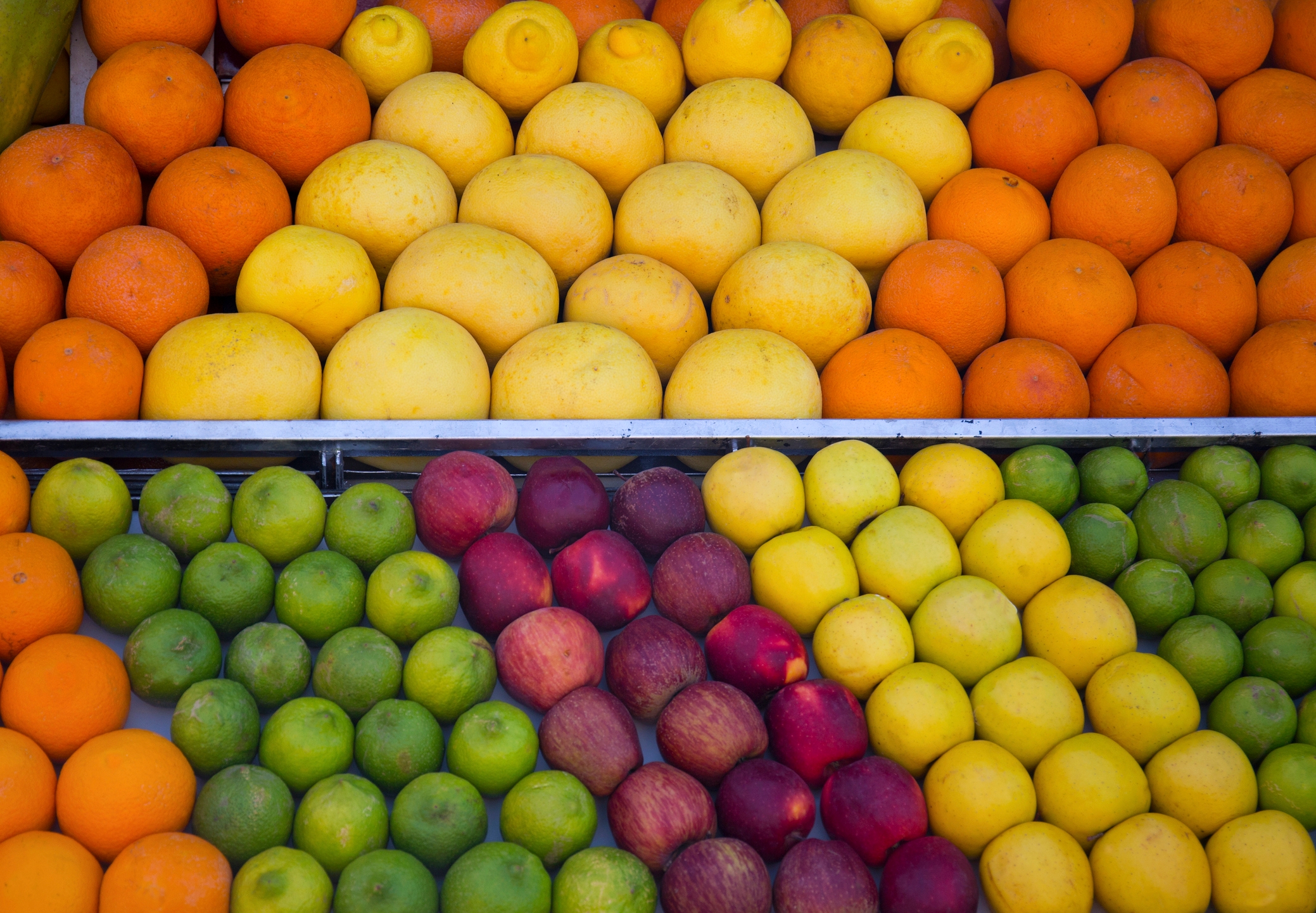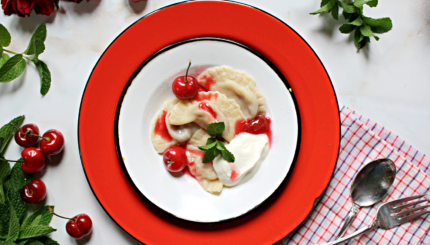Sitting in the well-lit, cluttered office behind his shop on Coney Island Avenue, in the heart of Midwood’s Orthodox Jewish community, Mitch Spitz envisions an orchard of fruit trees in Chile. For a few sweet winters, when temperatures were warmest in South America, he flew boxes of white nectarines from that farm to sell to his fiercely loyal customers in Brooklyn. The nectarines weren’t pretty, but they had a lavish creaminess and a banana-like fragrance.
“They were like candy,” Mitch tells me. “When I tell you candy — you could sell a million.”
Then one day, Mitch requested more white nectarines from a new salesman at the distributor. The salesman didn’t understand. Finally, Mitch got a supervisor on the phone and asked what had happened to the delicious stone fruit.
“His answer to me was: ‘I told that grower, he ships another box of that fruit, to lose my telephone number,’” Mitch says. “To him, it was a loser because it wasn’t pretty.”
The Nosher celebrates the traditions and recipes that have brought Jews together for centuries. Donate today to keep The Nosher's stories and recipes accessible to all.
The loss of his prized nectarines was just one of many typical setbacks for Mitch, whose produce shop, The Orchard, stands out on a block made up mainly of Glatt kosher eateries and Judaica shops. Obsessively attending to tropical fruit grown thousands of miles away, and adhering strictly to an ethos of freshness that seems more at home in California, The Orchard occupies a lonely role in outer Brooklyn.
But Mitch has a steady stream of customers from all over town — even on Saturdays, when The Orchard is the only business open on the block. One visit and you’ll understand why. If you’re used to run-of-the-mill supermarket fruit, a bite of one of Mitch’s pears, melons or mangoes will be revelatory.
Mitch’s father, Danny, first opened The Orchard in 1957 after working for years as a delivery boy for the fruit stores and Jewish bakeries of Coney Island Avenue. Danny, an orphan who was raised in a series of group and foster homes, nailed together some plywood boards, bought boxes of fruit wholesale, and set up shop among the six other produce vendors who once occupied the block between Avenues J and K. But he quickly realized that he needed to find a way to distinguish himself — apart from charging a few cents less per basket. With the spark of an idea that Mitch describes as “way ahead of his time,” his father decided he would, in fact, charge more than twice as much as his competitors — and guarantee unique, nearly perfect fruit year round.
Eventually, Danny cultivated friendships with Manhattan produce auctioneers and flew to Hawaii and California to meet with fruit growers. He was the first vendor to import fresh pineapple to the continental United States when the vast majority of consumers had only eaten canned. He was also among the first to sell kiwis, at first a marketing word for Chinese gooseberries grown in New Zealand.
When Danny died in 2015, crowds gathered outside Sherman’s Flatbush Memorial Chapel, a historic Jewish funeral home, to listen to the service on loudspeakers. Not only was he recognized for bringing tropical fruit to Brooklyn, he was beloved by Midwood residents for generosity, often signing blank checks to neighborhood families in need.
“He knew what it was to actually be starving at 6 years old,” Mitch says. “People would say to me that they had a picture of my father by their bed, and they’re strangers to me.”
In recent decades, the neighborhood around The Orchard has become nearly as Hasidic as neighboring Borough Park, and Orthodox customers have become a larger share of the Spitzes’ clientele. The store’s small selection of packaged goods and chocolates, intended to accompany fruit in gift baskets, are all pareve, and under rabbinical supervision. Leading up to the second night of Rosh Hashanah, when observant Jews eat unique seasonal or exotic “new fruit,” the store is packed with up to 45 tropical and local varieties.
The Spitzes carved out a niche that, for years, was theirs alone. Because the shop is only about as large as a studio apartment, they bought tiny batches of high-quality fruit at relatively high prices and, in turn, fetched higher prices from customers because of their reputation. They aimed for the sweetest possible fruit, usually too irregular, tender and sugary to make it to large supermarkets, which seek out huge orders of sturdy, long-lasting fruit.
“The bigger you are, the less flexible you are,” Mitch says. “There’s somebody in Dallas on the 42nd floor of a steel building who’s in charge of produce. If they get a thousand boxes of melons, and there’s five in a box, he wants to sell 5,000 melons. He don’t care [sic] if it eats good, if it’s hard as a rock, if it’s gonna end up in the garbage.”
Over the decades, fresh tropical fruit has become a common sight across New York, and specialty shops sell local produce from small farms upstate. But in its level of commitment to flavor, no matter the cost, The Orchard is still in a league of its own.
In the winter, Mitch and his employees drive to John F. Kennedy airport to pick up boxes of grapes, champagne pears, pink pineapples and white melons flown in mainly from South America. In the summer, nearly everything comes from California, and the Golden State remains Mitch’s holy grail.
“Nothing’s better than California,” he says. “Other places can grow it prettier, but you can’t beat the flavor.”
Mitch has several longtime employees who he envisions taking over the business when he’s gone. But until that day, he’ll be scouring the globe for fruit from his backroom office in Brooklyn.
“I still have the passion,” he says. “There’s a lot of action, it’s changing every day, and it’s exciting to find something that’s new and delicious. I’m not going to call it a day any time soon.”



